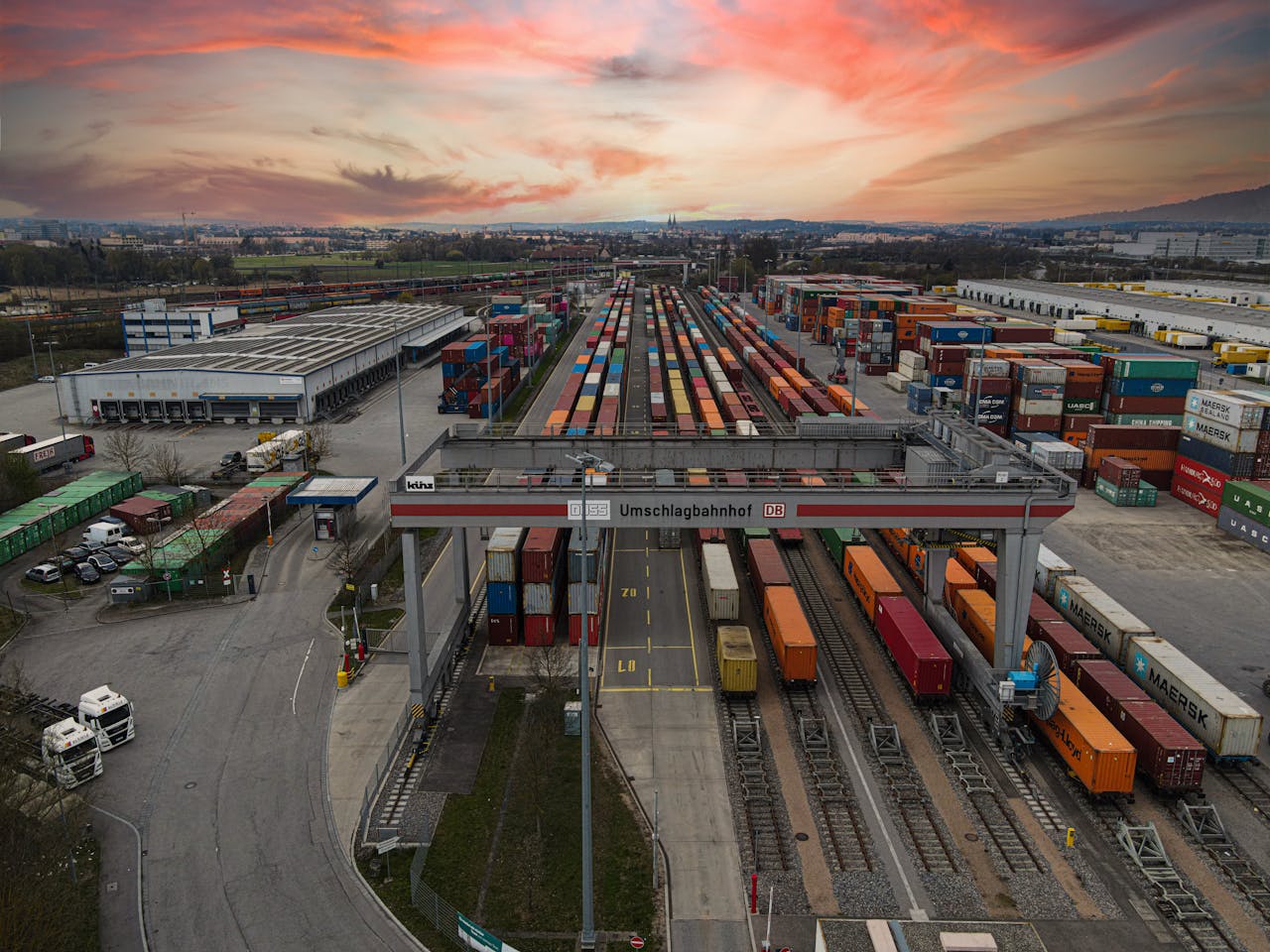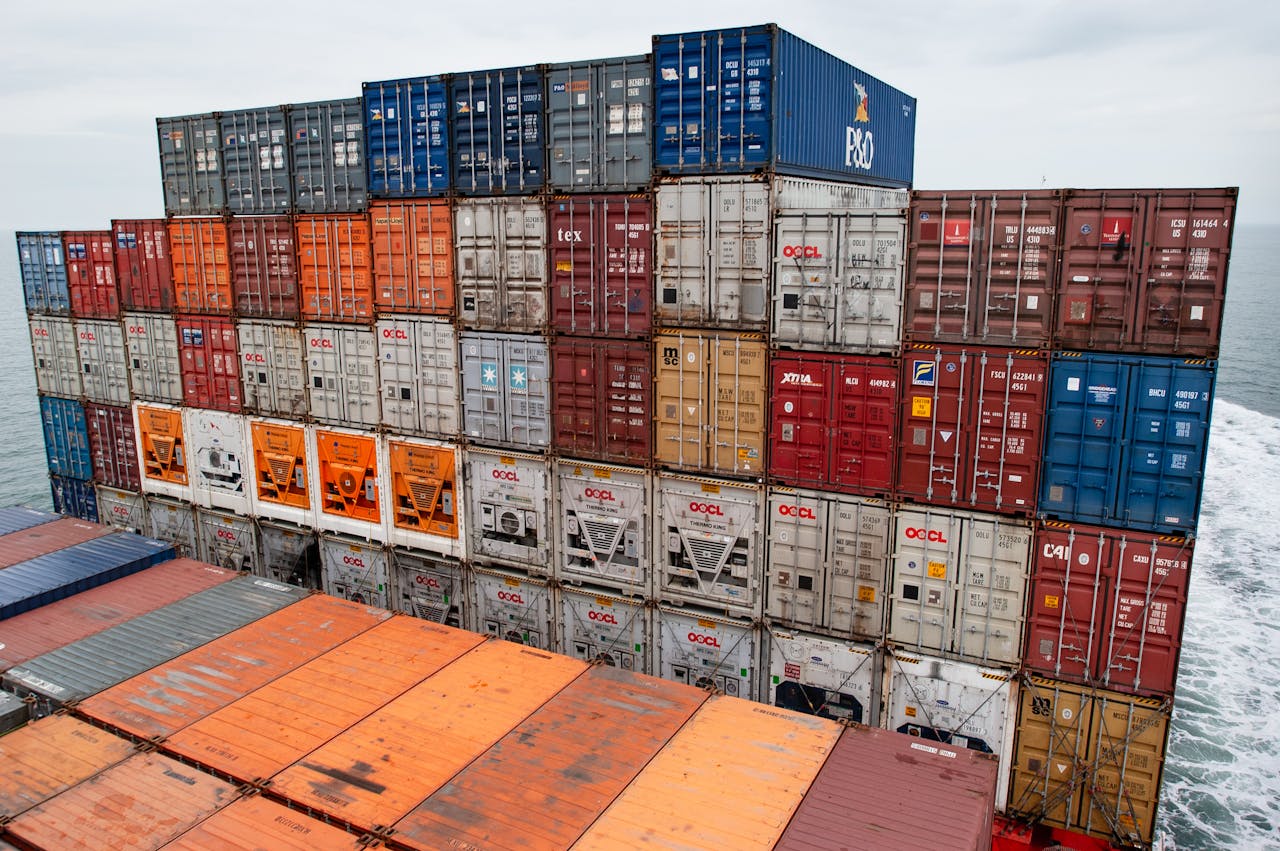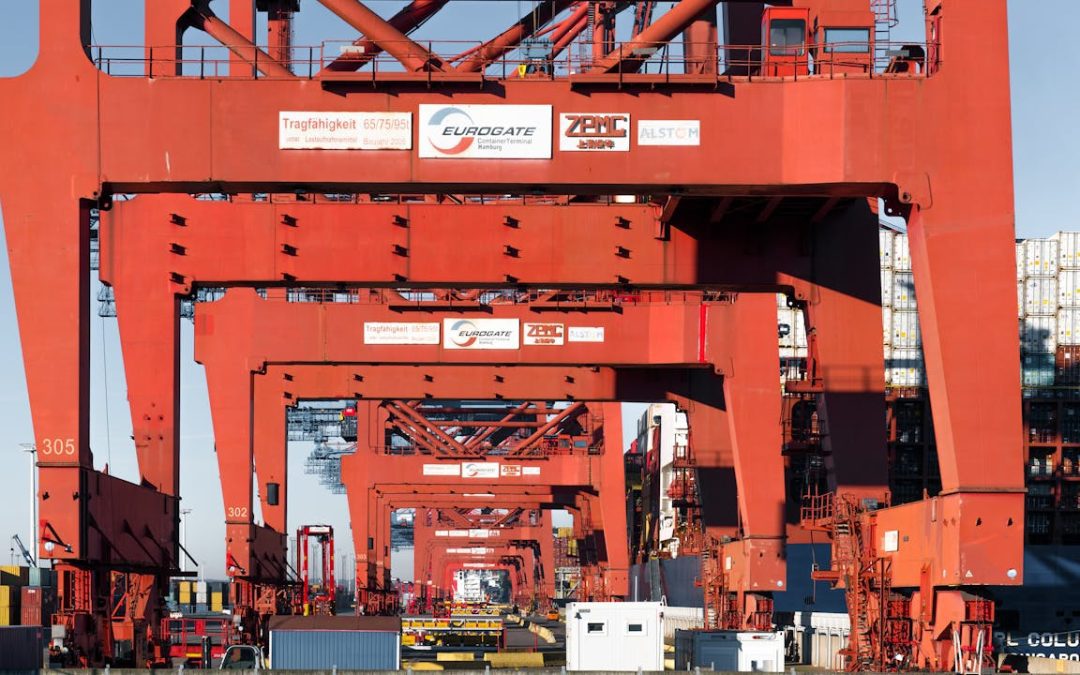When you’re moving goods from A to B, there’s more to think about than just how they’ll get there.
Who is responsible for the consignment at each stage of the journey? Who should take care of the insurance and the paperwork? And who should pay for what?
Enter Incoterms. Short for International Commercial Terms, Incoterms are a set of standard trading rules developed by the International Chamber of Commerce. Internationally recognised, they define who’s in charge of what during the global shipping process.
Choosing the best Incoterms for international shipments is critical because it can directly impact delivery times, overall cost, risk liability and the smooth running of your supply chain. The ICC itself says, “Getting the Incoterms® rule wrong can lead to unexpected costs, delays, and disputes.”
So, how do you know which Incoterms to use? In this guide for exporters, we explore the role of Incoterms, what purpose they serve and the best Incoterms for international shipments.
What Do Incoterms Actually Do?
Incoterms lay out what buyers and sellers are responsible for in international trade, eliminating confusion and misplaced responsibility and clearing up expectations.
They outline three key elements of global shipping:
- Who arranges and pays for shipping
- Where risk transfers from seller to buyer
- Who handles export/import clearance
The 11 Incoterms
Here’s a recap of the Incoterms themselves. You can read more about them here.
- EXW (Ex Works)
- FCA (Free Carrier)
- CPT (Carriage Paid To)
- CIP (Carriage and Insurance Paid To)
- DPU (Delivered at Place Unloaded)
- DAP (Delivered at Place)
- DDP (Delivered Duty Paid)
The next four are specific to Sea and Inland Waterway transport:
- FAS (Free Alongside Ship)
- FOB (Free On Board)
- CFR (Cost and Freight)
- CIF (Cost, Insurance and Freight)
Examples of Incoterms in Use
With EXW (Ex Works), the buyer is responsible for almost every element of the shipping process, including organisation of and payment for transport, insurance and all paperwork. The seller must simply make the goods available for collection.
Conversely, the seller handles almost everything under DDP (Delivery Duty Paid). Under this Incoterm, the seller takes care of shipping, customs clearance, duties and delivery right to the buyer’s doorstep. All the buyer needs to do is await their delivery.
Now, let’s look at CIF (Cost, Insurance and Freight) and FCA (Free Carrier). Under FCA, the seller transports the goods to a predetermined location, and at that point, the responsibility for the shipment shifts from seller to buyer. CIF determines that the seller takes care of insurance and pays for the main leg of the cargo’s journey, but that the risk is passed to the buyer as soon as the goods are loaded onto the ship.
Factors to Consider When Choosing the Right Term
Identifying the best Incoterms for international shipments depends on your situation, including how much responsibility you want to take on and the method you’ll be using to ship your goods.
Let’s go over some of the key factors in identifying which to use…
Mode of Transport
Some Incoterms only work for specific modes of transport. FOB (Free on Board) and CIF (Cost, Insurance and Freight) can only be applied to sea freight. Others, such as EXW (Ex Works), FCA (Free Carrier) and CPT (Carriage Paid To) can be used for any mode of transport, or a mixture – this is called multimodal transport.

Experience Level
New to international trade? Perhaps you’re a smaller business that doesn’t have the capital or logistics capabilities to support high levels of responsibility (especially if things go wrong).
Another element in deciphering the best Incoterms for international shipments is gauging your business’s level of experience. For smaller businesses, it may be safer to choose DDP (Delivery Duty Paid). Under DDP terms, the seller is responsible for all costs, risks and tasks involved in getting the goods from their country of origin to a predetermined location in the buyer’s country.
Experienced or larger importers and exporters often like to maintain more control, using terms like EXW or FOB. This works particularly well if they have long-standing trusted shipping partners and in-house logistics teams. Under EXW, all responsibility for dealing with the costs and risks of transporting the goods lies with the buyer, and under FOB, sellers must physically load the goods onto the predetermined ship. Once loaded, the buyer assumes responsibility for all costs and risks.
Risk Appetite and Cost Control
Some companies are happy to pay more to alleviate responsibility and shoulder the stress of complex shipping freight processes. Others prefer to have full control over costs are are willing to take on more risk to achieve it.
EXW is one of the best Incoterms for international shipments in this scenario as it gives the buyer full control, though this does come hand in hand with full responsibility.
Destination Country Regulations
Some countries have specific import regulations, customs policies, and tax procedures, which can influence the Incoterms you use to trade under.
An example of this is that in some regions of the world, importers must be referred to as the declarant, and as such, terms like DDP (Delivery Duty Paid) cannot be legally used. Under DDP, the seller takes full responsibility for delivering the goods all the way to the buyer’s location, including paying import duties, taxes and handling customs clearance in the buyer’s country. In these regions, an overseas seller often can’t legally complete the import paperwork or pay duties on behalf of the buyer without a local presence.
Available Logistics Infrastructure
What logistics support do you have at your disposal? Answering this question will key you in to working out the best Incoterms for international shipments.
If you’ve got a warehouse, a customs broker or a freight forwarder available, Incoterms such as FCA and DAP may be suitable. Without the proper infrastructure, however, giving the seller more responsibility with a term like DDP may be more appropriate.

Most Common Incoterms & When to Use Them
Most businesses tend to stick to a selection of commonly used Incoterms.
- EXW (Ex Works)
The buyer handles everything under EXW, including insurance, shipping and customs. EXW is best for experienced shippers with their own robust setup.
- FCA (Free Carrier)
Under FCA, the seller delivers the goods to the buyer’s carrier. This allows for flexible transport plans and multimodal shipping, or where the buyer wants control over the main part of the journey.
- CIF (Cost, Insurance, Freight)
Under CIF, the seller pays for everything up until the cargo reaches the port, and then the buyer takes on the risk once the goods are on the ship. This term is typically chosen for most sea freight consignments. - DDP (Delivered Duty Paid)
The seller handles everything, taking full responsibility for taxes, duties, delivery and customs clearance under DDP. This suits businesses that want full control and no nasty surprises.
These are some of the most commonly used Incoterms for international shipments among the majority of international traders.
To summarise, here’s an apt quote from Dimerco, a global freight company:
“There is no perfect Incoterm. The best one is the one that suits your capability and strategy.”
Pitfalls to Avoid
Working out the best Incoterms for international shipments can be overwhelming. But choosing the wrong term can lead to confusion, delays and unexpected expenditures.
Here are the top three pitfalls:
- Using sea-only terms for air freight. Sea-specific Incoterms shouldn’t be used for land-based or multimodal shipments.
- Agreeing on DDP when you’re unfamiliar with import rules. This can cause customs issues or delays at the destination.
- Not aligning internal teams or documentation with the agreed Incoterms. This can lead to costly confusion later on.
But worry not! Millennium has your back.
How Millennium Helps You Choose the Right Term
Incoterms can be confusing, and Millennium can simplify the process for you.
We start by assessing your goals, experience and shipment type, and then point you towards the term that will best meet your needs.
Whatever you’re after, we will explain the implications of your chosen Incoterm clearly and comprehensively so that you’re never left surprised by the outcome. And to make the experience as stress-free as possible, Millennium also supports you in sorting out paperwork, customs clearance and routing that align with the Incoterm in question.
Get Incoterms Right for Shipping Success
Incoterms are more than technical acronyms. They shape your cost, risk and control when you’re shipping goods internationally, so it’s crucial to choose the right one.
Not sure which are the best Incoterms for international shipments? Talk to the team at Millennium Cargo – we’ll help you get it right the first time.

